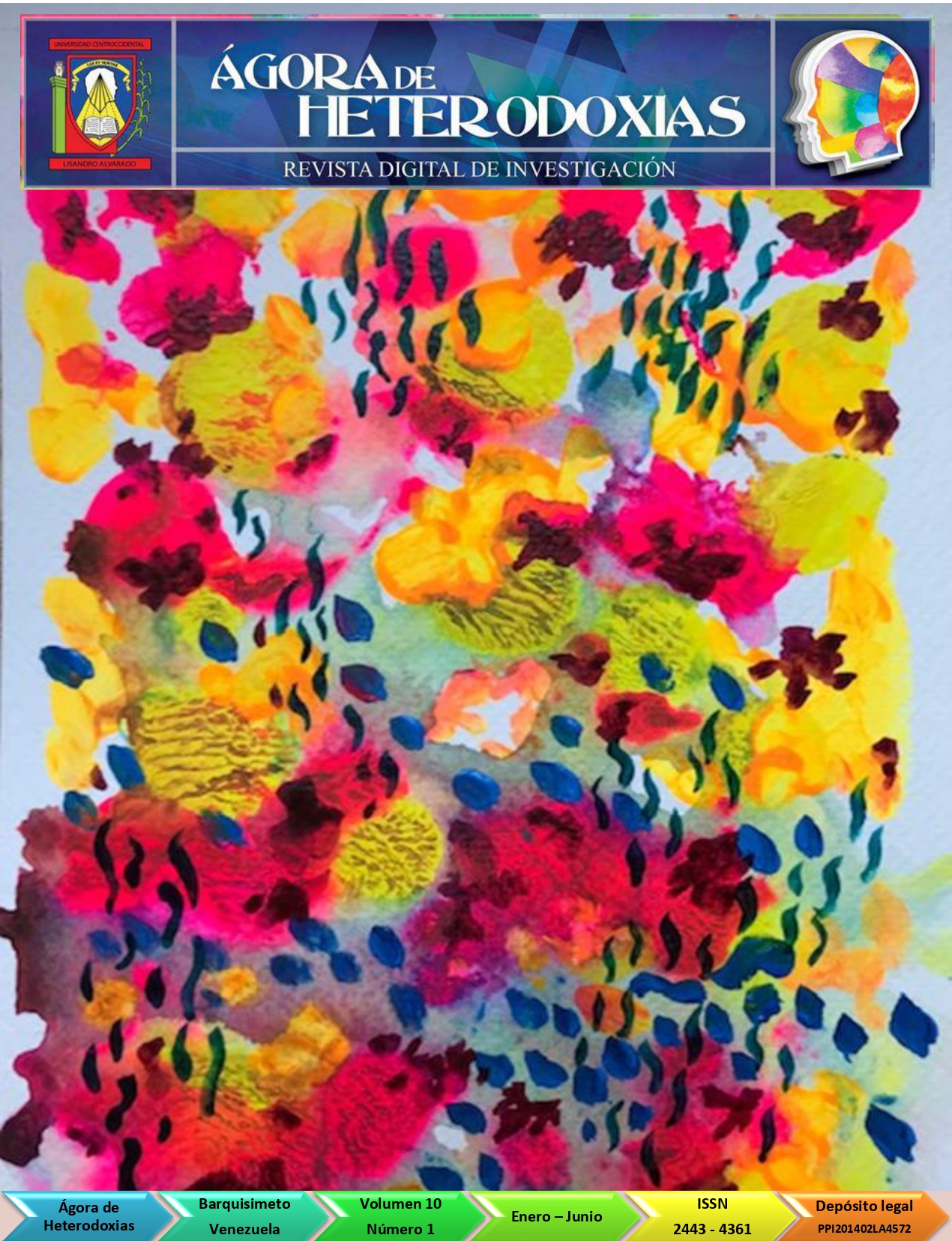Political, ideological and parental links in the dynamics of government networks
DOI:
https://doi.org/10.5281/zenodo.10615603Keywords:
Linkige, social cohesion, homophile, ego-networksAbstract
Networking can be defined as the process of weaving, supported by links, an inter- or intra-organizational network with intersectoral scope. In the case of intragovernmental networks, these constitute a system of polycentric essence accentuated by the diversity of organizations, public, private, government, business, educational, financial, etc. that can constitute it, as well as by the various interests, capacities, resources that are inserted in the network, creating an intricate and complex system that leads to requiring regulatory systems focused on negotiation, transaction, alliance, cooperation. If we want to understand the variation in the behavior of individuals, in the case of the rulers of a country, such as a president, we need to look more closely at their personal and institutional circumstances. Describing and analyzing variation among presidents in the way they are setting up homophilic networks embedded in government structures is the goal of this article.
Downloads
References
Burt, R (1982): Toward a Structural Theory of Action. Academic Express, New York. Pg. 381.
Burt, R. (1993): Structural Holes: The Social Structure of Competition. Cambridge, MA: Harvard University Press.
Dabas, Elina y Najmanovich, Denise (comp.) (2002): Redes. El lenguaje de los vínculos. Edit. Paidós. Argentina
Dechezelles, S. (2006). Comment peut-on être militant? Sociologie des cultures partisanes et des (dés)engagements. Les jeunes militants d’Alleanza Nazionale, Lega Nord et Forza Italia face au pouvoir, Tesis de doctorado, Bordeaux, IEP
Duncan J. (2006): Seis Grados de Separación. La Ciencia de las Redes en la era del Acceso. Edit. Paidós, Barcelona, España
El Diario. (2021). La dinastía de los Chávez en Barinas: una historia de enfrentamientos por el poder y una línea de sucesión disminuida. Periódico digital El Diario, 12 de febrero 2021. Disponible en: https://eldiario.com/2021/12/02/la-dinastia-de-los-chavez-en-barinas/. Consultado el 22 de octubre 2023
El Pulso (2023): VOA: Denuncia de nepotismo en Honduras: ¿quiénes son los familiares señalados? 31 de mayo 2023. Disponible en::
https://www.elpulso.hn/2023/05/31/voa-denuncia-de-nepotismo-en-honduras-quienes-son-los-familiares-senalados/. Consultado el 26 de octubre 2023
Espinoza R. L. (2017). “Redes Interorganizacionales”. Ediciones del Vicerrectorado Académico de la Universidad del Zulia. Maracaibo, Venezuela.
Evtushenko, A. y Kleinberg, J. (2022). The paradox of second order homophily in networks. Scientific Report. Cornell University, Ithaca, NY, USA. En | https://doi.org/10.1038/s41598-021-92719-6. Consultado 27/10/2023
Granovetter, M.S. (1985): Economic action and social structure: The problem of embeddedness. American Journal of Sociology , 91: 1360-1380.
Feld, Scott L. (1982). “Structural Determinants of Similarity among Associates”, American Sociological Review, 47: 797–801.
Hurtado, J. (1993). Familias, Política y Parentesco. Jalisco, 1919-1991, México, FCE.
Ibarra, H.; Andrews S. B. (1993). “Power, social influence, and sense making: Effects of network centrality and proximity on employee perceptions” Administrative Science Quarterly, 38 (2): 277-303.
Información Puntual (2023). Los hijos de Daniel Ortega y sus roles en la política de Nicaragua. Disponible en: https://ipnicaragua.com/los-hijos-de-daniel-ortega-y-sus-roles-en-la-politica-de-nicaragua/. Consultado el 23 de octubre de 2023
Lazarsfeld, P. F.; Merton R.K. (1954). “Friendship as a social process: A substantive and methodological analysis”, en Berger M.; Abel T.; Page C.H (eds.), Freedom and Control in Modern Society, New York: Octagon Books, pp.18-66.
Lozares C., Carlos (1996). La teoría de redes sociales. Papers: revista de sociología, ISSN 0210-2862, ISSN-e 2013-9004, Nº 48, 1996, págs. 103-126, Disponible en: https://dialnet.unirioja.es/servlet/articulo?codigo=5206480.
McPherson, J.M.; Smith-Lovin, L.; Cook, J. (2001). “Birds of a feather: homophily in social networks”, Annual Review of Sociology, 27:415–444
Martínez, A. (2020). Cuatro Familias con Poder en el Nuevo Gobierno. El Caribe. 19 agosto 2020. En https://www.elcaribe.com.do/destacado/cuatro-familias-con-poder-en-el-nuevo-gobierno/. Consultado el 26 de octubre de 2023
Martínez H., Al, Miranda O, N., Sendra, M. & Olucha S., F (2022). Congruencia Ideológica en América Latina. Una Propuesta de Medición en Tres Niveles de Representación Política: Élites, Ciudadanos y Programas Electorales. Análisis Político n.º 104, Bogotá, enero-junio de 2022, págs. 63-90. Disponible en http://www.scielo.org.co/pdf/anpol/v35n104/0121-4705-anpol-35-104-63.pdf. Consultado el 28 de septiembre 2023
Nique, W. (2017). Hacerse militante: la construcción del vínculo político en un partido emergente. El caso de proyecto sur. En: http://www.scielo.org.ar/pdf/postdata/v21n2/v21n2a04.pdf, Consultado 20 de octubre 2023
Se Jin Koo (2014). Parties, Voters, and Activists: Building Ideological Linkage in Developing Democracies file:///E:/vinculos%20ideologicosKOO-DISSERTATION-2014.pdf
Van Ditmars, M. (2017). Family & Politics The enduring influence of the parental home in the development and transmission of political ideology. https://cadmus.eui.eu/bitstream/handle/1814/47965/vanDitmars_2017.pdf?sequence=1&isAllowed=y
Verbrugge, L.M. (1983). “A research note on adult friendship contact: a dyadic perspective”. Soc. Forces, 62: 78–83
Published
How to Cite
Issue
Section
Copyright (c) 2024 Rafael Espinoza

This work is licensed under a Creative Commons Attribution-NonCommercial-ShareAlike 4.0 International License.
![]() Authors keep their copyrights so articles can be reused for teacher and research purpose. Readers and users can also reuse articles for the same purposes but not for commercial purposes. Ágora de Heterodoxias has no responsibility on information given by collaborators which is not necessarily the point of view of the publication
Authors keep their copyrights so articles can be reused for teacher and research purpose. Readers and users can also reuse articles for the same purposes but not for commercial purposes. Ágora de Heterodoxias has no responsibility on information given by collaborators which is not necessarily the point of view of the publication



